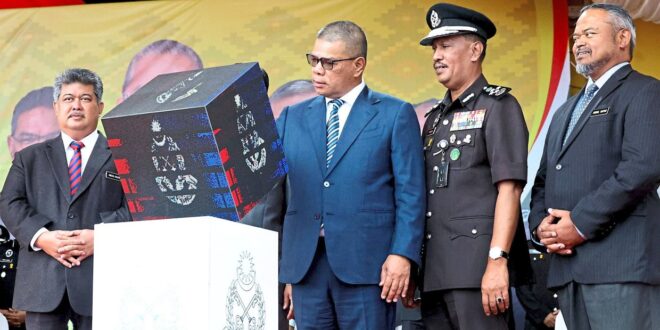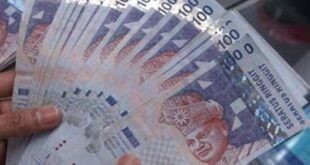PUNCAK BORNEO: The government has agreed in principle to implement the Licensed Release of Prisoners (PBSL) as part of efforts to reduce overcrowding in prisons.
This proposal, if approved, will see prisoners serving jail time of four years and below given the “privilege” of serving their sentence through “home detention”.
Home Minister Datuk Seri Saifuddin Nasution Ismail said his ministry is currently in the process of examining the implementation method to see if the existing laws and regulations need to be amended.
“It needs to be reviewed whether it is sufficient to amend the existing laws, or whether there is a need to enact a new law under the authority of the Prisons Department director-general or the Home Ministry.
“I asked the Home Ministry secretary-general (Datuk Ruji Ubi) to review and provide feedback… this matter must be expedited,” he told BK at a press conference after the 234th Prison Day celebration at Puncak Borneo Prison Complex here yesterday.
According to him, the inmates involved in the initiative consist of individuals with chronic diseases, the elderly, persons with disabilities, and expectant mothers.
Saifuddin said that through programmes such as the parole system, compulsory attendance order and community rehabilitation, the government is not only able to tackle the problem of overcrowding in prisons, but also put in cost-saving measures for the country.
He said that the programmes which had been implemented had a positive impact, with statistics showing that out of 800 prisoners released, only one was back in prison.
Earlier, Saifuddin read out the text of Deputy Prime Minister Datuk Seri Fadillah Yusof’s opening speech for the event.
In the speech, Fadillah said that the Sarawak Prison institutions were named Outstanding State Prison Award 2023 recipients, following the excellent achievement of the four key performance indicators (KPI) of international standards in the management of the rehabilitation and prison system.
“The four KPI set, which are the recidivism rate of 12.7%; remand (13.5%) and overcrowding (-13.2%), are much better than the international standard level of 20%.
“The rate of incarceration is at 119 per 100,000 population, compared with the international figure of 145 per 100,000 population,” he said.
 BeritaKini.biz Berita Viral Terkini di Malaysia
BeritaKini.biz Berita Viral Terkini di Malaysia





